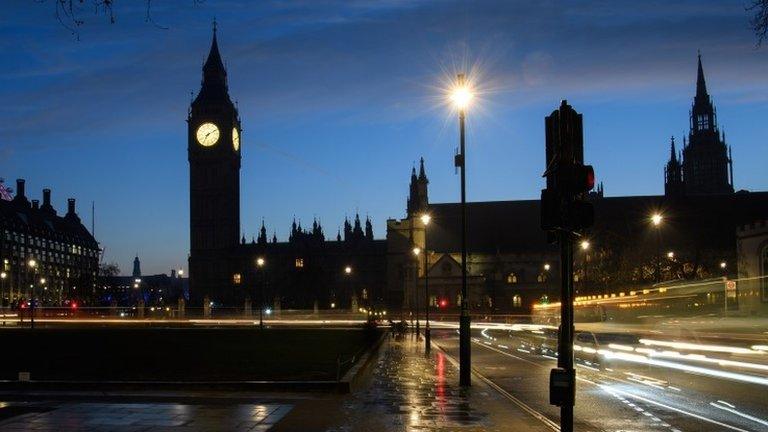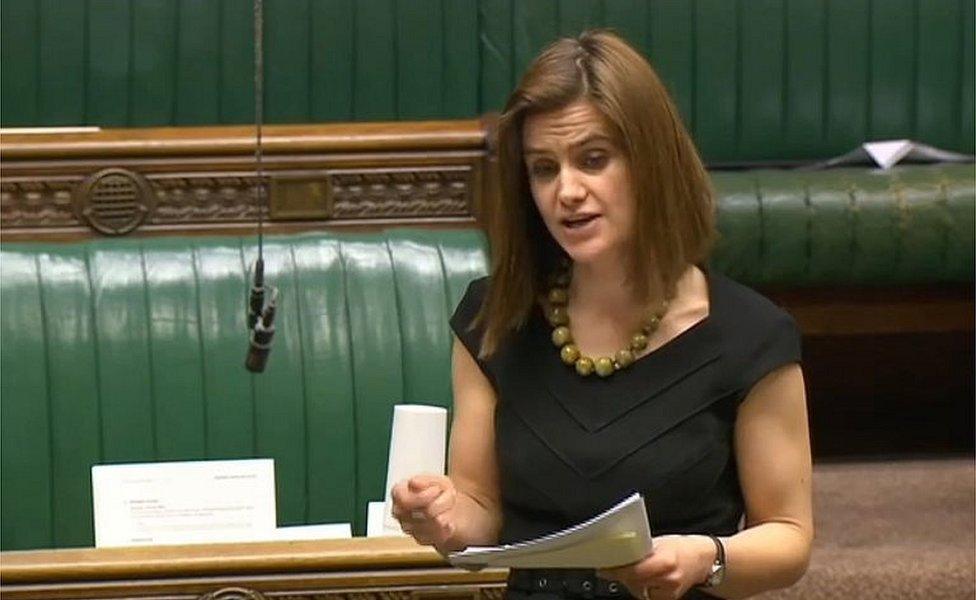Mistreatment of women MPs revealed
- Published

An overwhelming majority of women MPs have received online and verbal abuse from the public and a third have considered quitting as a result, a BBC Radio 5 live survey suggests.
Some reported death threats, with more than half of those questioned saying they had had physical threats.
More than a third of the UK's 195 female MPs took part in the research.
Of these, two thirds said they felt "less safe" following the murder of the Labour MP Jo Cox last summer.
Deputy Commons Speaker Lindsay Hoyle said Parliament was working with police to ensure MPs' safety and offer training to enhance their security while away from Westminster.
'Stand up to bullies'
The anonymous 5 Live survey, conducted last month, saw one respondent remarking that "the level of violence and abuse has significantly increased in the last years. At times I have been very frightened."
Another wrote: "Had to phone the police once, [after] a constituent threatened to kill me."
A 5 live survey of women MPs shows the majority who replied had received online and verbal abuse.
Following the murder of Mrs Cox, who represented Batley and Spen, one MP said she had received "absolutely zero" support from Parliament or her party.
Another wrote: "I asked my kids' view on whether I should stop after Jo's death, but their support was all I needed. Standing up to bullies is the only answer."
"I won't give in," wrote another.
SNP's Anne McLaughlin worries abuse faced by female MPs will put other women off politics.
The research reveals how abuse faced by politicians can affect their families. One MP wrote: "The feeling of not being able to protect my children was unexpected, as was having panic buttons fitted."
One revealed she had "worries for the safety of my parents in the constituency", while another found she was "more protective of my family and info on where they live/go to school".
In the wide-ranging survey, female politicians were asked for their views on getting more women into Parliament.
'In the kitchen'
More than half were in favour of all-female shortlists, while almost half wanted a crackdown on "unprofessional or sexist" language at Westminster.
But the idea of allowing breastfeeding in the chamber was resoundingly rejected. One MP said: "I wouldn't breastfeed my baby if I worked on the checkout at Tesco, so why would I do it in the chamber?"
Two-thirds of those who responded to the survey said getting more women elected would mean Parliament would make better decisions.

The murder of Jo Cox has made many women MPs feel less safe
One commented that "less time would be wasted. Too much hot air from men". Another said: "Parliament might be run more sensibly - less time wasted on posturing and debate for the sake of debate."
Almost two-thirds of the female MPs who responded to the survey said they had received sexist comments from fellow workers or MPs - with one told she should be "in the kitchen washing the dishes".
One woman MP said she had experienced sexual assault and two said they had been groped.
Of the women with children who responded, the majority found long-distance travel, irregular hours and late parliamentary sittings a problem.
'100% worth it'
One mother commented that "constant 'dissing' and lack of valuing what an MP does, children pick this up".
Another worried about the "embarrassment of my kids if I do anything controversial" and a "risk of bullying".
The women MPs were asked whether they would still stand for Parliament if they were just starting out, knowing what they do now. One in six said they would not, but the majority said they would.
One wrote that "having put so much into becoming [an MP], you can feel like a slot-machine addict - it's hard to walk away". Another said: "The good I can do is 100% worth the flak I get."
One respondent commented: "Of course - don't let the buggers win."
Mr Hoyle said: "Members of Parliament, and their staff and families, are facing unprecedented levels of attacks, abuse and threats. No one should have to endure this as 'part of a job'."
The Parliamentary Security Department worked with the Metropolitan Police to ensure security while MPs were at Westminster, he added.
Mr Hoyle also said: "Since September 2016 the House of Commons has appointed a contractor to support all members, who wish it, to install security measures recommended for all MPs by the National Police Chiefs' Council.
"The Parliamentary Security Department also offers Members personal security advice, based on best practice guidance from police and security experts, and is currently working to provide self-protection and personal security training to MPs and their staff."